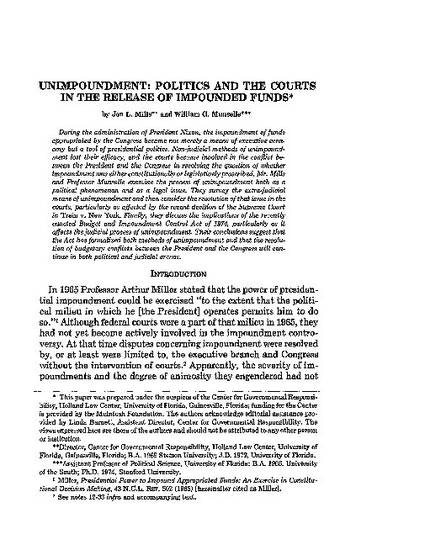
During the administration of President Nixon, the impoundment of funds appropriated by the Congress became not merely a means of executive economy but a tool of presidential politics. Non-judicial methods of unimpoundment lost their efficacy, and the courts became involved in the conflict between the President and the Congress in resolving the question of whether impoundment was either constitutionally or legislatively proscribed. Mr. Mills and Professor Munselle examine the process of unimpoundment both as a political phenomenon and as a legal issue. They survey the extra-judicial means of unimpoundment and then consider the resolution of that issue in the courts, particularly as affected by the recent decision of the Supreme Court in Train v. New York. Finally, they discuss the implications of the recently enacted Budget and Impoundment Control Act of 1974, particularly as it affects the judicial process of unimpoundment. Their conclusions suggest that the Act has formalized both methods of unimpoundment and that the resolution of budgetary conflicts between the President and the Congress will continue in both political and judicial arenas.
